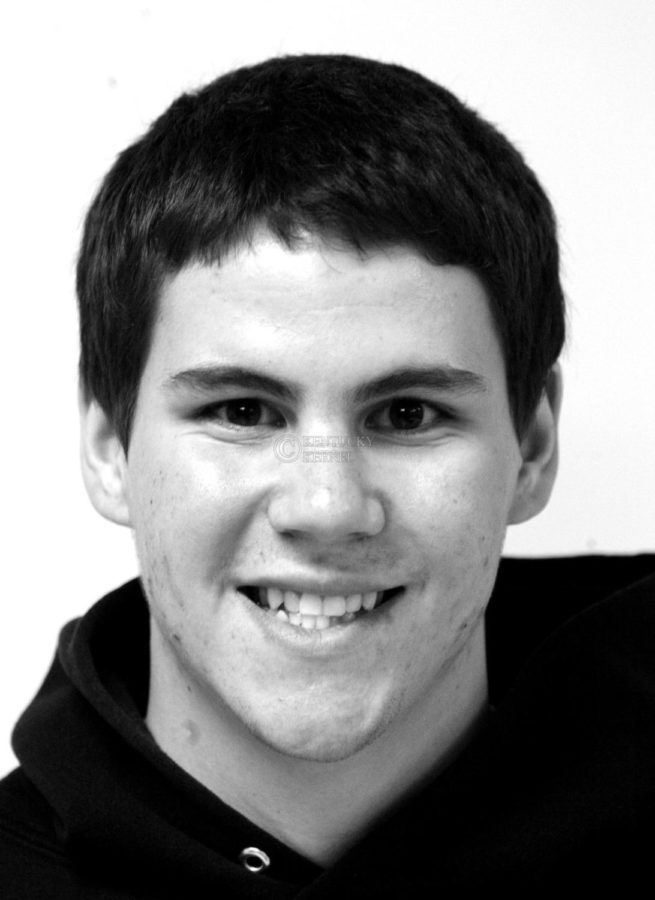Man versus machine, a life struggle
April 25, 2010
Nobody wants to be a scientist. Well, at least not at first, because everyone wants to be an artist.
The idea that great ability and knowledge simply flow out from one’s natural being is much more appealing than a lifetime of regression analysis.
Unfortunately, most of society peaks as an artist sometime around Mario Paint and Guitar Hero.
For those of us forced to read incredibly boring books to gain skills, we need some haven from the avalanche of data and processes.
It is given our jobs will not ask us to dazzle the world with our personal, revolutionary ideas and opinions. However, there is still a yearning on our part to find it somewhere.
For instance, we could predict the outcome of a sporting event. It takes an expert who truly understands the game to continually be able to determine outcomes long before they actually occur.
In a process unique to ourselves, we can take in the available information and turn it into a usable form. Unfortunately, over the long run we are just deluding ourselves.
Why so?
Because everything we believe we know about the sports we love is quite small compared to what every internet-connected computer is aware of.
The 21st century is not ruled by the wise fan that has seen everything a hundred times. It is dominated by the infinitely faster thinking personal laptop that has seen everything a hundred thousand times.
Today, sports are ruled by Sabermetrics, Jeff Sagarin, and the Defense-Adjusted Yards Above Replacement statistic. The old guard likes to strike out with sophomoric taunts when they hear it, but the nerds figured out sports better than they ever did without much trouble.
The gut feel of the expert has been clearly surpassed by the cold analytics of an engineer’s spreadsheet.
But even those skilled at math must admit, it’s not nearly as fun that way. While filling out your NCAA bracket using computerized determinations can be lucrative, it’s not nearly as enjoyable as using your own innate ability. It puts some cash in the pocket and another nail in the coffin of the artist.
It’s quite possible science fiction got it all wrong. The future isn’t spaceships and aliens. It’s an overly complete knowledge of life.
Computers can tell us who we are, who to marry, and who to bet on seemingly better than we can. The science of our work life has found a new market, our personal lives.
Now, the obvious response is to say, “OK. Just ignore the stupid machine.” But, that can be quite perilous because the computer is doubtlessly better at whatever it is you are doing than you naturally are.
Ignore it, and you give the rest of the world a constant one-up on you. I’m sure they won’t mind exploiting it to their own advantage.
So what recourse do we have? Well, luckily, computers are still dependent on us telling them what to do.
Unluckily though, the answers to our problems are out there, and someone is going to eventually figure out the solution and let his computer know. These problems re-open the window for the artist to creep back in though.
Just because the answers are out there does not mean that they are easy to find through any conventional process.
Someone figured out some way to quantify how many runs catching a deep fly ball was worth to a baseball team, and it certainly was not in their calculus textbook. The only available comeback against the creep of data is to stay ahead of the curve.
The scientist must now become the artist. They must continually innovate using their learned skills and natural talent to stay ahead of the curve.
If any computer can be right 60 percent of the time on who will win a game, the scientific artist must figure out how to make his computer right 70 percent of the time. Today’s expert is not just innately better than others, his computer is better too.
































































































































































